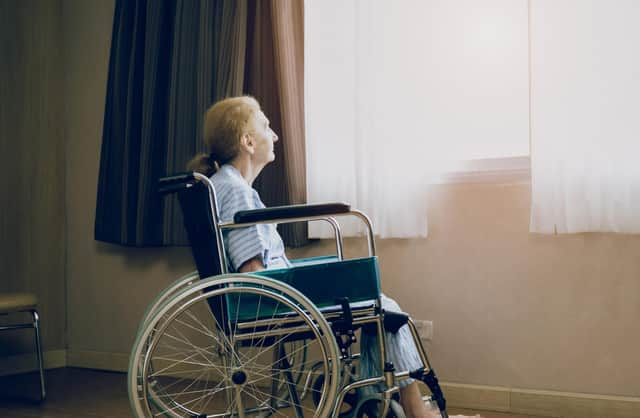LEGAL EAGLE: What is a Relevant Person’s Representative and when is one required?


Deprivation of Liberty Safeguards (DoLS) exist to protect the rights of individuals who lack capacity to make certain decisions for themselves. They are an important safeguard to make sure that vulnerable individuals are treated and cared for with dignity and respect, and as far as possible, in line with their own wishes.
The process of authorising an individual’s deprivation of liberty following a DoLS assessment includes a requirement that they are appointed a representative. They are known as the Relevant Person’s Representative (RPR). They are often a family member, friend, or other carer, but can also be from a paid organisation if there is no one else suitable.
Advertisement
Hide AdAdvertisement
Hide AdThe role of the RPR is to keep in regular contact with the individual deprived of their liberty and advocate on their behalf. The RPR should be informed about the individual’s care and treatment, and any changes that are made. The RPR is allowed access to the individual’s documentation and should make sure this is up to date and accurate and can request reviews when necessary.
Section 21A Court of Protection proceedingsIf the individual objects to any aspect of the DoLS, the RPR has a duty to challenge this on their behalf. It may not necessarily be what the individual says but how they act. For example, they might express a wish to go home, check doors in an attempt to leave, or refuse to accept support from carers.
Even if the RPR has their own views about the individual’s care and accommodation, they must challenge the DoLS on behalf of the individual if they are clearly objecting to it. The RPR has a duty challenge the DoLS, regardless of whether the individual’s wishes have merit or not. It is important to remember that the individual has a legal right to challenge the DoLS even though they lack capacity to do this themselves and to make decisions about their care and accommodation.
This is done by making an application under Section 21A of the Mental Capacity Act 2005. This process involves a judge at the Court of Protection reviewing the DoLS to confirm that they are lawful and in the individual’s best interests.
Advertisement
Hide AdAdvertisement
Hide AdSometimes the judge agrees that the DoLS are appropriate and that the individual’s care should remain as it is. Other times, the judge may think that the individual’s needs would be better met in a different setting, or that simple changes can be made to improve the individual’s care and make the arrangements less restrictive.
The importance of ‘best interests’
The RPR must make decisions and act on behalf of the individual who lacks capacity to make their own decisions in their best interests. There is legal guidance of things the RPR needs to think about when they make a decision in the individual’s best interests. This includes:• Involving the individual in any decision, as far as possible.• Taking into account the individual’s wishes and feelings, including any views they expressed in the past.• Taking into account the individual’s beliefs or values.• Considering if the decision can be delayed if the individual may regain capacity.
We provide legal advice and representation across the North of England to RPRs or the individual who is deprived of their liberty.
Legal Aid funding is automatically available to individuals who are deprived of their liberty in Section 21A Court of Protection proceedings. Legal Aid funding is available in certain circumstances for RPRs.
Advertisement
Hide AdAdvertisement
Hide AdBen Hoare Bell LLP has specialist Court of Protection Solicitors who can help. To speak to a solicitor please contact us on 0191 565 3112 or email [email protected]. Visit www.benhoarebell.co.uk for further information.